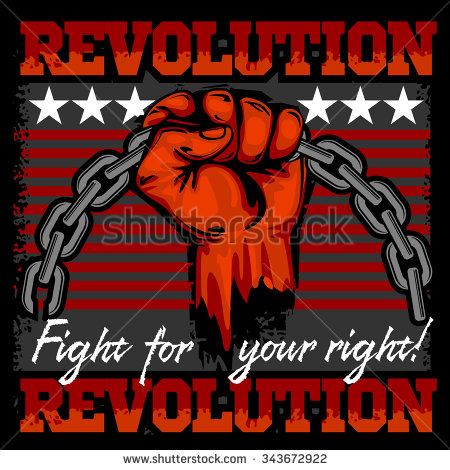
by Duane Sharrock
There is an intersection near my town where war veterans stand with flags and banners to protest. Their numbers grow and shrink depending on the week, but some are there every Sunday. They are not bearing arms; they are armed with words and presence.
Sometimes, on the opposite corner, across from these protesters and as opposition, there is another group of protesters.
At no time, has anyone crossed the street to physically fight each other. Each side is peopled with adults–not children. They are just Americans with differing perspectives voicing their opinions and disagreements. And both groups are protesters.
Americans should never stand against protests. We should never silence protest. Protest is as American as the Boston Tea Party that rejected taxation without representation (although “340 chests of British East India Company Tea, weighing over 92,000 pounds (roughly 46 tons), onboard the Beaver, Dartmouth, and Eleanor were smashed open by the Sons of Liberty armed with an assortment of axes and dumped into Boston Harbor the night of December 16, 1773.” https://www.bostonteapartyship.com/the-destruction-of-the-tea).
Since the Boston Tea Party and the birth of our nation, Americans have also protested oppression in its various forms. They have protested slavery, animal testing, abortion, the torture and neglect of pets, driving while intoxicated, the poisoning of water due to fracking, child labor, and more. Unlike the Civil War and the the wars that gave birth to this nation, there are still people alive who remember newsworthy protests and some of these protests have led to change. From the comforts of their own homes watching television or by participating in some direct way, some may personally remember the reactions to Richard Nixon, the Korean War, the Vietnam War, and the Civil Rights movements. Nobody gets a pass: not kings or queens, not politicians, not the rich or the powerful. Nobody. Americans have always questioned and challenged and risen up against what they believe is wrong to fight for what they believe is right.
However, history teaches that protest can take many forms. Protest includes marches, sit-ins, music festivals, documentary films, opinion essays in newspapers and other publications, but protest is also expressed through the Arts. Oliver Twist (British) and Annie, although adapted into musicals with memorable songs, protest the bad treatment of orphans. Some of our most celebrated movies are protests against the tyranny of powerful individuals, organizations, systems, and even ideas themselves. We celebrate the comedians Richard Pryor, Carol Burnett, George Carlin, Whoopi Goldberg, Wanda Sykes, Lenny Bruce, Freddie Prinze, Jane Curtain, Gilda Radner, and the hundreds of others living and dead, because of their ability to make us laugh but also for their ability to make us see things differently, to think and to question. That’s what makes us American. It is not subservience and obedience. It is our ability to question the powers that be, and it is protest.
Sometimes though, in the throes of a revolution, The Arts and their artists are often the first who are attacked for their subversiveness and their undermining of power. When you want to begin a new regime, ignoring and censoring are not enough. You have to silence the opposition beyond discrediting, since even discrediting is not enough, more extreme measures might be taken: “Writers, artists and intellectuals who were the recipients and disseminators of the “old culture” would be comprehensively eradicated. The majority of writers and artists were seen as “black line figures” and “reactionary literati”, and therefore persecuted, many were subjected to “criticism and denunciation” where they may be publicly humiliated and ravaged, and they may also be imprisoned or sent to be reformed through hard labour.” Of course, make no mistake: the murder and imprisonment and blacklisting starts with censoring and discrediting. But even before that, you need buy-in. You need agreement that one side is dangerous and inhuman, while your side, the revolutionaries, are the Good. Dehumanizing leads to the imprisonment and more radical means of silencing, while the Good side rationalize the dismissal of values and ethical behavior as necessary for the revolution.
Rights, so often, are not given freely. They almost always have to be fought for. Only after a fight do voices get heard. But before the fight, people must decide on priorities and values. People have to ask themselves, “Is this point really important enough that I stand up and stand out? Do I really want to take this risk?”
Standing up and standing out is scary. By standing up and standing out you can be seen, identified, and remembered. You can be blacklisted or boycotted. You can be publicly humiliated or physically abused. Your property can be trashed with a burning cross or defaced with painted messages. When does the childishness cross the line into cowardly terrorism? Revolutionaries tend to dismiss these questions.
The trick though is to move past the protest, past the fear of what might be said or what has been said, past the need to censor and silence, in order to begin a dialogue. In a real dialogue opinions are respected while being challenged, information is exchanged, people learn from each other. They translate their needs and wants so that they are understood. This is how greatness happens.
Make no mistake. Although there have been isolated incidents where violence has broken out, and there were a few dishonorable verbal attacks, there are millions of protesters who did not do violence and have protested with dignity. Instead of posting a meme to voice disagreement, instead of throwing money at lobbyists who represent their interests, instead of waiting for someone else to take a stand, they inconvenienced themselves by leaving their comfortable homes and traveling to their major cities to stand and walk with hundreds of thousands of wives, daughters, mothers, grandmothers, with even a few fathers, sons, and grandfathers, to say this is not how they want the President of the United States to conduct himself. They have greater expectations. They want their concerns heard and taken seriously, recognized, and understood. This tradition of protest should be honored, not discouraged. We should never encourage obedience for its own sake.




